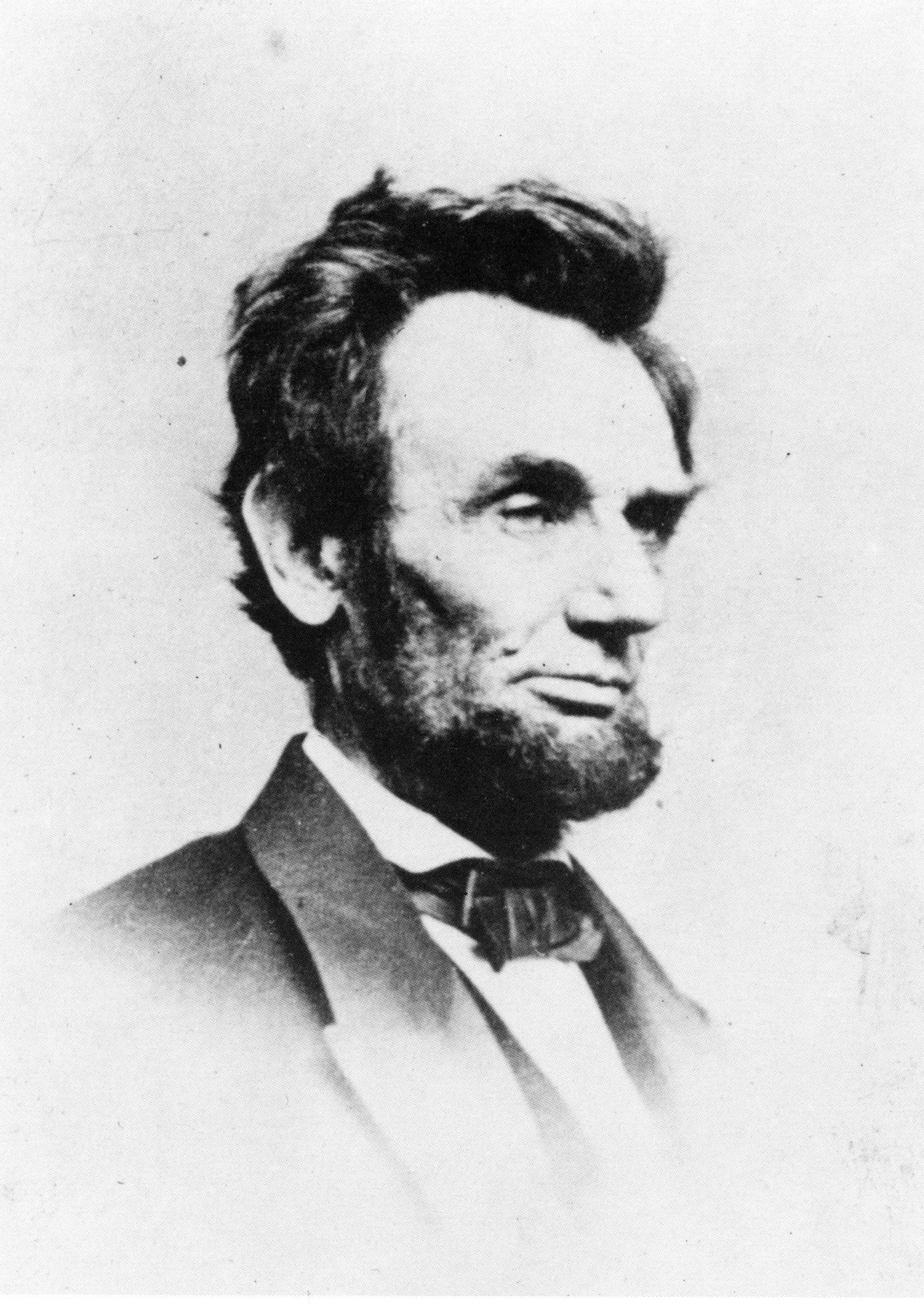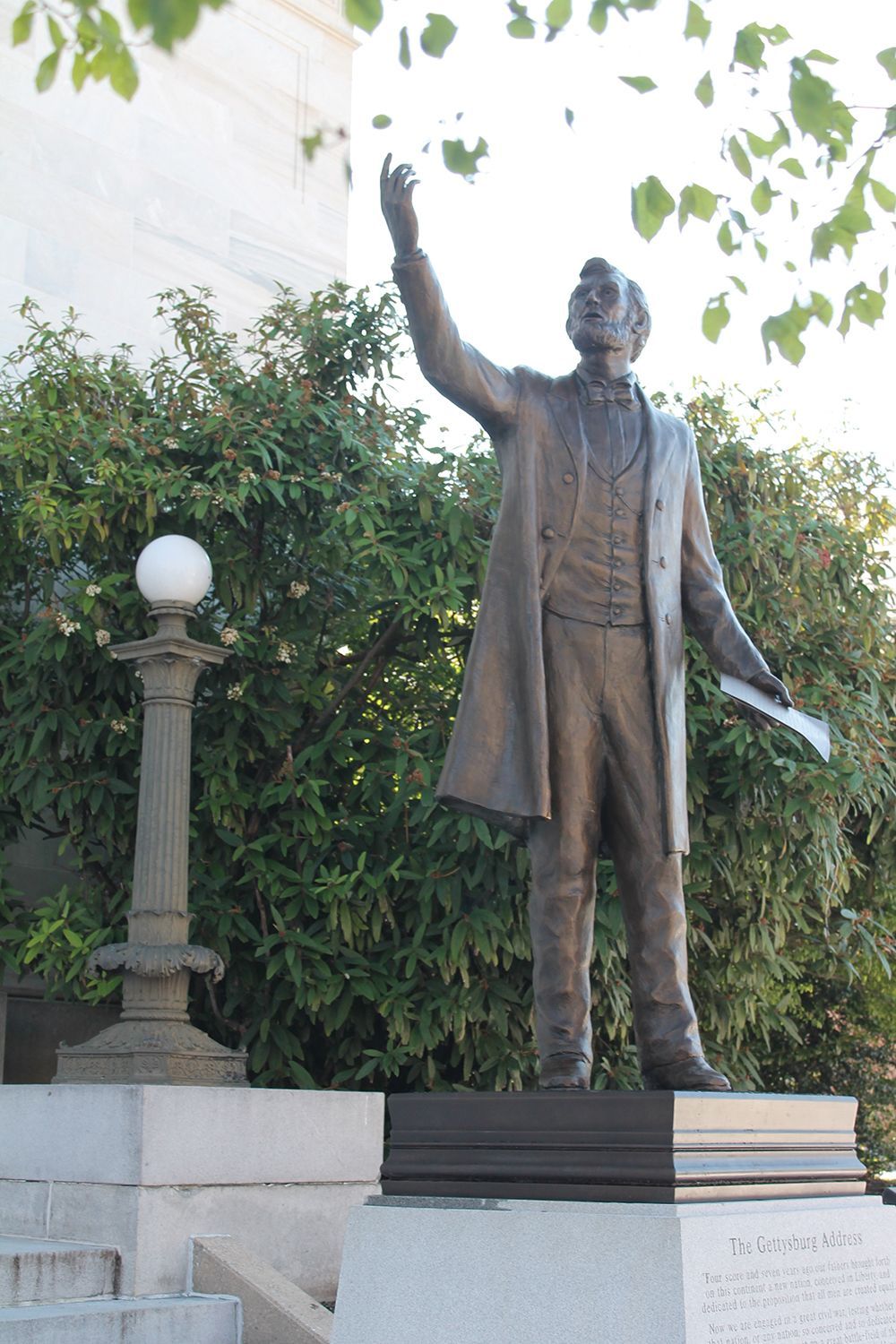We Saw Lincoln
Edited by Diana Loski

Abraham Lincoln, 1863
(Library of Congress)
When David Wills invited Abraham Lincoln to speak at the dedication of the Soldiers National Cemetery at Gettysburg, it was almost an afterthought. The main orator, Edward Everett, had already been chosen – in fact, the date of November 19th was selected for the dedication because that was the first day the popular speaker had free in his calendar. Wills believed Lincoln to be unpopular, but decided to invite the President on November 2, asking him to give “a few appropriate remarks”.1 Judge Wills soon learned that Lincoln was immensely popular, and the speech he gave at Gettysburg was remembered long afterward. Here are a few eyewitnesses, a handful among the thousands, to that eventful day.
“It was a beautiful morning…a cloudless sky, and the sun shone out in glorious splendor…It is estimated that 15,000 to 20,000 were present.” 2 (Reverend H.C. Holloway, a student at Pennsylvania, now Gettysburg, College in 1863)
“The stand was 38 feet square, erected on boxes all the same size..I became separated from the boys, so crawled under the platform. Through a crack in the planks I looked directly into Lincoln’s face, and heard every word he said. Now, though 85 years old, I still feel keenly those tuggings at heartstrings which seized me on that autumn day, when I gazed into the face of the President.” 3 (George Gitt, who was a youth at the time of the dedication)
“The calm, honest face of the President at once exhibited the pride of country, and an affection for her fallen sons unusual among those high in authority. His soul was unconscious that he himself, ere the consummation of the great sacrifice, should be given up to death by which martyred soldiers die. We felt sorrowful when we left.” 4 (Sophronia Bucklin, Gettysburg nurse)
“I remember well how the great President rode up with his Cabinet, head and shoulders above them all. His face was very grave, for it is history now, aside from the burden of the great nation he was sharing, the late loss of his little son was pressing upon him…With a hot sun beating down upon the immense throng, packed together, it was rather long , we perhaps felt. But when Lincoln rose such a silence fell that we almost forgot to breathe. How he stood before us, gaunt, rugged, great. I remember every word, every gesture, as he said ‘We cannot dedicate, we cannot consecrate’ etc. How I wish there had been some of our modern instruments to catch the tone and show the gestures that the nation might hold it.” 5 (Carrie McMillan Buck, whose house stood on Seminary Ridge)
“As he came forward he seemed to me, and I was sitting near to him, visibly to dominate the scene, and while over his plain and rugged countenance appeared to settle a great melancholy, it was somehow lightened by a great hope. As he began to speak, I instinctively felt that the occasion was taking on a new grandeur, as of a great moment in history, and then there followed, in slow and very impressive and far-reaching utterance, the words with which the whole world has long been familiar. As each word was spoken it appeared to me so clearly fraught with a message, not only for us of his day, but for the untold generations of men, that before he concluded I found myself possessed of a reverential awe for its complete justification of the great war he was conducting, as in truth it was, in the interest of mankind. 6 (Reverend H.C. Holloway)
“The stillness was very noticeable. He thrilled them by his very presence.” 7 (Theodore Bikle, a student at Pennsylvania, now Gettysburg, College in 1863)
“It was the earnestness of his manner that impressed me...It was a prophecy and a promise… that ‘this nation shall not perish from the earth.” 8 (Daniel Skelly, 18 years old, whose brother was mortally wounded in July 1863 at the Battle of Winchester)
“He had spoken to every heart.” 9 (Henry Eyster Jacobs, son of Gettysburg professor Michael Jacobs in 1863)
Lincoln's Gettysburg Address remains one of the greatest speeches ever uttered by a President. As Henry Eyster claimed, Lincoln had indeed reached the hearts of the people.
And with his immortal speech, he still does, all over the world.
“It was a beautiful morning…a cloudless sky, and the sun shone out in glorious splendor…It is estimated that 15,000 to 20,000 were present.” 2 (Reverend H.C. Holloway, a student at Pennsylvania, now Gettysburg, College in 1863)
“The stand was 38 feet square, erected on boxes all the same size..I became separated from the boys, so crawled under the platform. Through a crack in the planks I looked directly into Lincoln’s face, and heard every word he said. Now, though 85 years old, I still feel keenly those tuggings at heartstrings which seized me on that autumn day, when I gazed into the face of the President.” 3 (George Gitt, who was a youth at the time of the dedication)
“The calm, honest face of the President at once exhibited the pride of country, and an affection for her fallen sons unusual among those high in authority. His soul was unconscious that he himself, ere the consummation of the great sacrifice, should be given up to death by which martyred soldiers die. We felt sorrowful when we left.” 4 (Sophronia Bucklin, Gettysburg nurse)
“I remember well how the great President rode up with his Cabinet, head and shoulders above them all. His face was very grave, for it is history now, aside from the burden of the great nation he was sharing, the late loss of his little son was pressing upon him…With a hot sun beating down upon the immense throng, packed together, it was rather long , we perhaps felt. But when Lincoln rose such a silence fell that we almost forgot to breathe. How he stood before us, gaunt, rugged, great. I remember every word, every gesture, as he said ‘We cannot dedicate, we cannot consecrate’ etc. How I wish there had been some of our modern instruments to catch the tone and show the gestures that the nation might hold it.” 5 (Carrie McMillan Buck, whose house stood on Seminary Ridge)
“As he came forward he seemed to me, and I was sitting near to him, visibly to dominate the scene, and while over his plain and rugged countenance appeared to settle a great melancholy, it was somehow lightened by a great hope. As he began to speak, I instinctively felt that the occasion was taking on a new grandeur, as of a great moment in history, and then there followed, in slow and very impressive and far-reaching utterance, the words with which the whole world has long been familiar. As each word was spoken it appeared to me so clearly fraught with a message, not only for us of his day, but for the untold generations of men, that before he concluded I found myself possessed of a reverential awe for its complete justification of the great war he was conducting, as in truth it was, in the interest of mankind. 6 (Reverend H.C. Holloway)
“The stillness was very noticeable. He thrilled them by his very presence.” 7 (Theodore Bikle, a student at Pennsylvania, now Gettysburg, College in 1863)
“It was the earnestness of his manner that impressed me...It was a prophecy and a promise… that ‘this nation shall not perish from the earth.” 8 (Daniel Skelly, 18 years old, whose brother was mortally wounded in July 1863 at the Battle of Winchester)
“He had spoken to every heart.” 9 (Henry Eyster Jacobs, son of Gettysburg professor Michael Jacobs in 1863)
Lincoln's Gettysburg Address remains one of the greatest speeches ever uttered by a President. As Henry Eyster claimed, Lincoln had indeed reached the hearts of the people.
And with his immortal speech, he still does, all over the world.

The Lincoln Gettysburg Address statue, Gettysburg
(Author photo)
Sources: Bikle, Theodore. “Mr. Lincoln’s Gettysburg Speech.” Civilian Accounts File, Adams County Historical Society (hereafter ACHS). Conklin, E.F. Women at Gettysburg Gettysburg, PA: Thomas Publications, 1993. Holloway, Reverend H.C. “Lincoln at Gettysburg: Recollections of the Rev. H.C. Holloway”. Jacobs, Henry Eyster. Notes on a Life of a Churchman: Memoirs of Henry Eyster Jacobs, ed. Henry E. Horn. Vol. 1. Huntingdon, PA: Church Management Services, Inc., 1974. Copy, Lutheran Theological Seminary, Gettysburg. Lincoln Gettysburg Address Eyewitness File, ACHS. Letter, David Wills to Abraham Lincoln, Nov. 2, 1863. Copy, Wills File, ACHS. McMillan House File, Gettysburg National Military Park. Skelly, Daniel Alexander. A Boy’s Experiences During the Battle of Gettysburg. Gettysburg, PA: D.A. Skelly, 1932. Copy, ACHS.
End Notes:
1. Letter, David Wills to Abraham Lincoln, Nov. 2, 1863. ACHS.
2. Holloway, p. 5.
3. Lincoln Gettysburg Address Eyewitness File, ACHS.
4. Conklin, p. 331.
5. McMillan House File, GNMP.
6. Holloway, p. 9.
7. Bikle Civilian Account File, ACHS.
8. Skelly, p. 27.
9.Jacobs, p. 64.

